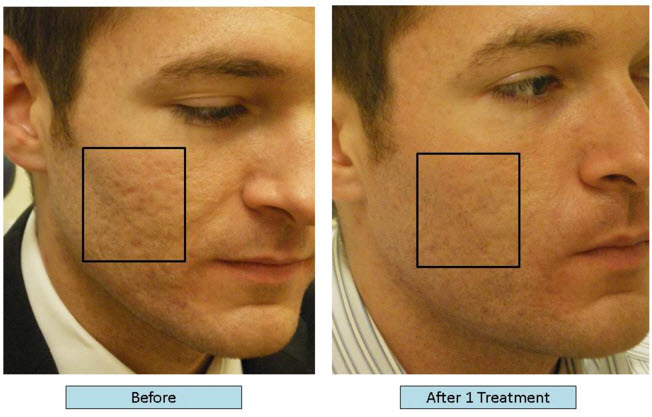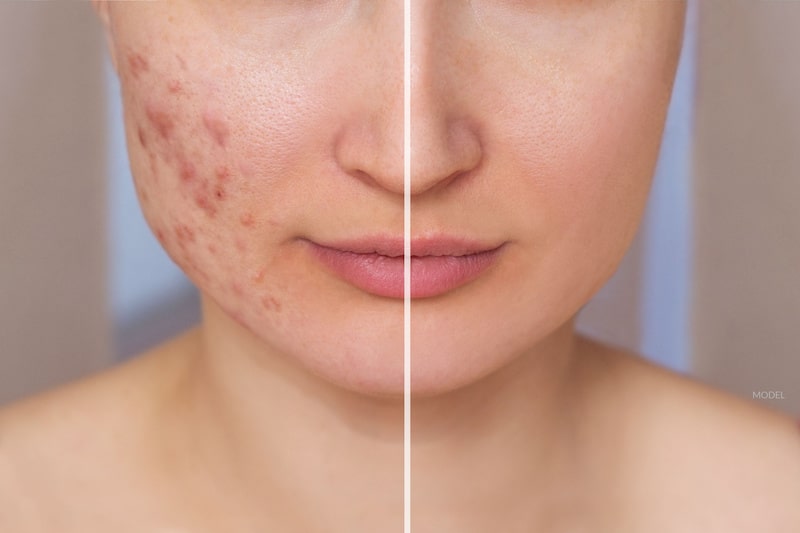Targeted Acne and Acne Scars Treatment: Reclaim Your Clear Skin
Targeted Acne and Acne Scars Treatment: Reclaim Your Clear Skin
Blog Article
Discovering Skin Disease: Treating and recognizing Acne Scars for Healthier Skin
Acne scars stand for a considerable worry for people seeking to preserve healthy skin, as they can impact both appearance and self-worth. Understanding the various sorts of scars, from atrophic to hypertrophic, is important for figuring out proper therapy alternatives. While expert treatments like chemical peels and microneedling can be effective, the value of individualized treatment strategies can not be overemphasized. Preventative steps play a critical role in lessening future scarring. As we explore these facets, one must consider exactly how the right strategy can result in transformative results.
Understanding Acne Scars
Recognizing acne marks is important for any person that has experienced extreme acne, as these marks can have a long-term influence on both physical look and mental well-being. Acne scars create when the skin undergoes inflammatory actions during active acne sores. The extent of scarring is usually influenced by variables such as the sort of acne, its duration, and specific skin qualities.
The body's all-natural healing procedure can lead to either atrophic scars, which look like anxieties in the skin, or hypertrophic marks, which are increased and arise from overproduction of collagen. Furthermore, the mental toll of acne marks ought to not be ignored; lots of individuals report sensations of humiliation, stress and anxiety, and lowered self-worth. This psychological worry can affect social interactions and general lifestyle.
Resolving acne scars calls for a detailed understanding of their formation and effect. Understanding of the possibility for long-lasting consequences linked with neglected marks can encourage individuals to look for appropriate treatments. Early intervention and efficient management strategies can dramatically improve skin look and enhance psychological resilience, highlighting the importance of recognizing the intricacies surrounding acne marks.
Kinds of Acne Scars
Acne marks can be classified into unique types, each displaying special attributes and requiring details therapy techniques. The key sorts of acne scars include atrophic, hypertrophic, and keloid marks.

Hypertrophic scars, in contrast, are elevated above the skin degree and are the result of excessive collagen production during the recovery process. They commonly continue to be within the boundaries of the original acne sore. Keloid marks are similar yet extend past the original injury website, forming bigger, increased areas that can be itchy or unpleasant.
Recognizing these sorts of marks is essential for picking suitable treatment choices. Different scars might react far better to details treatments, such as laser therapies, fillers, or medical treatments, stressing the importance of a tailored approach to acne mark monitoring.
Recognizing Your Marks
Acne scars usually fall right into two groups: hypertrophic and atrophic scars. These can better be classified right into ice-pick scars, boxcar scars, and rolling marks, each displaying unique features and calling for different approaches for assessment - acne scars treatment.
Hypertrophic scars, on the other hand, are raised and take place because of too much collagen manufacturing during the recovery procedure. Recognizing the details features of your marks-- such as size, appearance, and depth-- is crucial for proper recognition. Additionally, think about the distribution of marks across your skin, as this can suggest the extent and duration of the acne condition.
Involving with a skin doctor can provide useful understandings into the nature of your scars, helping in the distinction between various types. A detailed understanding of your scars will eventually cause an extra tailored and reliable treatment plan, making sure a more clear and much healthier complexion.
Treatment Choices Readily Available
Determining the certain kind of acne marks existing on your skin lays the foundation for exploring efficient treatment options. Typical sorts of acne marks consist of atrophic (clinically depressed), hypertrophic (elevated), and post-inflammatory erythema.
For atrophic marks, choices such as chemical peels, microneedling, and laser resurfacing are commonly utilized. Chemical peels utilize acids to remove the external layer of skin, advertising new cell growth.
Hypertrophic scars can be treated with corticosteroid shots to squash the mark or laser therapy to decrease inflammation and improve my review here appearance. acne treatment for sensitive skin. Silicone gel sheets and pressure dressings may additionally help in managing elevated scars
In addition, dermal fillers can momentarily fill out clinical depressions from atrophic scars, while medical excision may be proper for severe situations. Each therapy alternative has its considerations and benefits, making it vital to talk to a skin doctor. They can give individualized suggestions based on the kind and intensity of your marks, in addition to your skin type and overall health and wellness.
Tips for Avoidance
Effective prevention approaches can considerably lower the possibility of establishing acne marks. Using non-comedogenic products aids prevent clogged up pores, which can aggravate acne.
Preventing the desire to pop or choose acne sores is crucial, as this can cause much deeper skin damages and increase the danger of scarring. Rather, take into consideration making use of a cold compress or over the see here counter treatments to minimize swelling and redness.
Sun defense is an additional essential aspect of prevention; ultraviolet (UV) rays can darken scars and impede the recovery procedure. Using a broad-spectrum sunscreen with at the very least SPF 30 daily can safeguard the skin and promote also recovery.
Last but not least, preserving a well balanced diet abundant in anti-oxidants, minerals, and vitamins supports skin wellness and healing. weblink Staying moisturized and managing stress and anxiety degrees can likewise play a substantial function in lowering acne flare-ups. By implementing these methods, people can significantly minimize their possibilities of developing acne marks.

Verdict
To conclude, understanding and determining acne scars is essential for effective treatment and accomplishing healthier skin. Numerous types of acne marks, consisting of atrophic and hypertrophic marks, require details treatments customized to private demands. Therapy alternatives range from chemical peels and microneedling to corticosteroid shots, highlighting the relevance of consulting a skin specialist. Additionally, adopting a mild skincare routine and protecting the skin from UV exposure can dramatically add to the avoidance of additional scarring and general skin health.
The body's natural recovery procedure can result in either atrophic scars, which appear as depressions in the skin, or hypertrophic marks, which are elevated and result from overflow of collagen. They are further split into 3 subtypes: ice choice marks, boxcar scars, and rolling marks. Acne scars generally fall right into 2 groups: hypertrophic and atrophic scars. These can even more be classified into ice-pick scars, boxcar scars, and rolling scars, each exhibiting distinct attributes and needing various approaches for evaluation.
Different kinds of acne marks, including hypertrophic and atrophic marks, require particular treatments tailored to specific needs.
Report this page